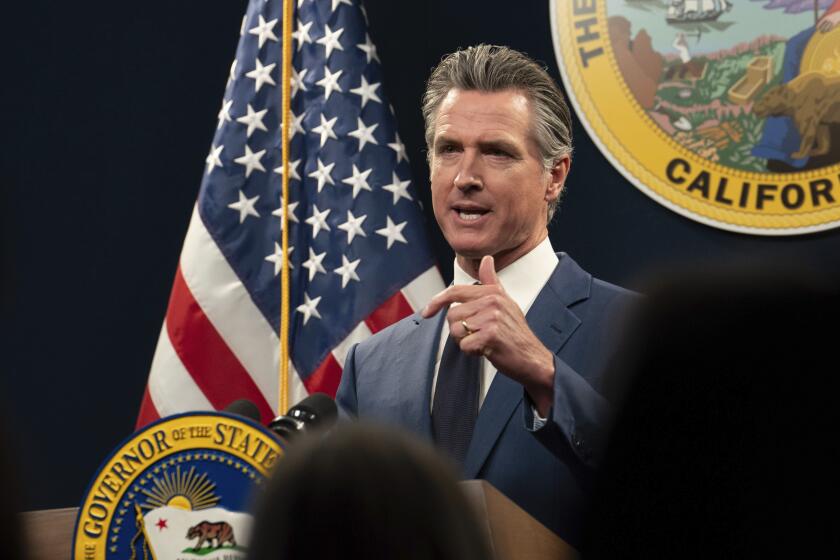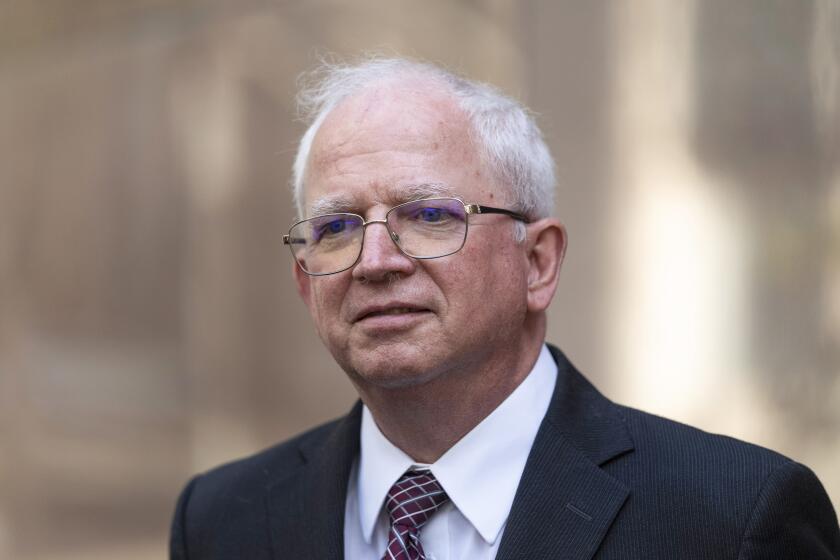GOP Bid to Abolish Energy Dept. Assailed : Budget: O’Leary sees dangers to society. She says proposals to cut nuclear weapons cleanup program would jeopardize public health and environment.
Energy Secretary Hazel O’Leary, echoing the reaction in the corridors of three government agencies, said Wednesday that the House Republican proposal to abolish her department represents “a dismally limited look” at what the agency does.
“It fails to recognize the value of our work in applied and basic science,” she said. Many of the department’s functions would be retained at reduced levels in other government agencies--levels that she said would be dangerously low.
Proposals to cut the Energy Department’s nuclear weapons cleanup program by $1 billion would jeopardize “the public health and environment of the American people,” O’Leary said.
Her warning was more dire but no less ferocious than those of a handful of officials in other agencies designated for elimination by House Budget Committee Chairman John R. Kasich (R-Ohio).
Education Secretary Richard W. Riley declared the House proposal to abolish his department and eliminate some Clinton Administration programs “bad for children” and warned that the country would suffer if it backs away from its investment in its youth.
And the policy director of the Commerce Department issued a spirited defense of that agency, arguing that its work helps American exports and businesses.
In the Energy Department, O’Leary is fighting to save her agency and to protect the budget for what she sees as its most important mission--the cleanup of thousands of radioactively contaminated weapons sites.
O’Leary said that Republican proposals to cut $1 billion from the nuclear cleanup would result in large-scale violations of legal requirements, delay cleanup schedules and prevent safety upgrades.
“I cannot tell you exactly where or when a safety incident will happen but the nature of these risks is too dangerous to test the margins,” she said in a letter to Rep. Duncan Hunter (R-El Cajon), chairman of the House National Security Committee panel that oversees the waste cleanup budget.
The Administration has requested a nuclear cleanup budget of $6.7 billion for fiscal 1996, ranking it as the world’s largest environmental program. Republican lawmakers have said that the program is rife with mismanagement and that all the cleanup goals could be accomplished even with deep budget cuts.
The Energy Department recently announced reforms that will save $4.4 billion over the next five years and has instituted a wide range of reforms over the last year, O’Leary said Wednesday.
The budget cuts would cause the loss of 10,000 jobs, a political issue that O’Leary highlighted by releasing a state-by-state employment breakdown. Although California’s share is a relatively small 445 jobs, Idaho would have to absorb losses of 3,468 and South Carolina would lose 6,479--enough to get the political attention of those states’ delegations.
The House budget proposal would eliminate the Administration’s school-to-work program, which provides funds for schools to develop programs that link high school students to employers and jobs. It would also abolish the Goals 2000 program, which provides funds to districts in 47 states for school reforms.
The plan would also target older federal programs that assist poor and immigrant children, including $4.3 billion in grants to areas of concentrated poverty and $1.7 million for bilingual and immigrant education over the next seven years.
A proposal to eliminate the subsidy that pays interest on government-guaranteed and direct government loans would affect 5 million post-secondary students, the Education Department said.
It would save $18 billion over seven years, proponents said. Other programs that help low-income and disadvantaged students enter college and assist them while they are there--such as Upward Bound--also would be abolished, saving $2.8 billion over seven years.
Times staff writer Stanley Meisler in Washington contributed to this story.
More to Read
Get the L.A. Times Politics newsletter
Deeply reported insights into legislation, politics and policy from Sacramento, Washington and beyond. In your inbox three times per week.
You may occasionally receive promotional content from the Los Angeles Times.







